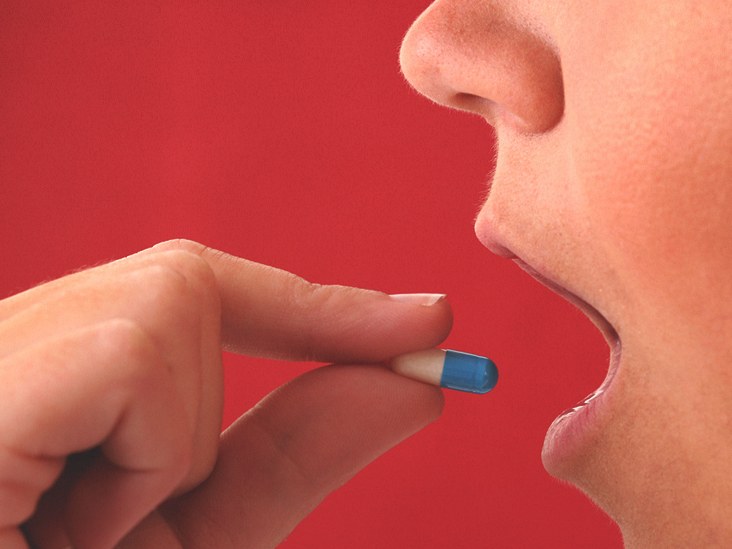Propranolol is a medication that is often prescribed to treat high blood pressure. However, it has also been found to be effective in treating depression. This has led to some controversy, as some people believe that propranolol should only be used for hypertension and not for mental health conditions. In this blog post, we will take a closer look at the evidence behind the use of propranolol for depression and discuss whether or not it is an effective treatment option.
Contents
Understanding Propranolol And Depression
 Propranolol is a beta blocker. Beta-blockers are a class of drugs that are typically used to treat high blood pressure and heart conditions. However, in recent years, propranolol has been used off-label to treat anxiety and public speaking fear. Since propranolol can help to decrease the physical symptoms of anxiety, such as trembling and sweating, it helps treat social anxiety disorder.
Propranolol is a beta blocker. Beta-blockers are a class of drugs that are typically used to treat high blood pressure and heart conditions. However, in recent years, propranolol has been used off-label to treat anxiety and public speaking fear. Since propranolol can help to decrease the physical symptoms of anxiety, such as trembling and sweating, it helps treat social anxiety disorder.
Depression is a mental illness characterized by persistent low mood, loss of interest or pleasure, feelings of guilt or low self-worth, disturbed sleep or appetite, and so on. While it is normal to experience some level of these symptoms at certain points in our lives when they are persistent and interfere with our ability to function, it may be indicative of depression.
The Controversy Between Propranolol And Depression
The controversy surrounding propranolol and depression arises from the fact that while beta-blockers can help to alleviate the physical symptoms of anxiety, they have also been linked with worsening depression. In a study published in JAMA Psychiatry, researchers found that people who took beta-blockers were more likely to experience depression than those who didn’t.
There are a few possible explanations for this association.
- First, it’s possible that the underlying condition (anxiety or heart disease) that propranolol is treating could also be contributing to the development of depression.
- Secondly, beta-blockers can cause fatigue and low energy, which are common symptoms of depression.
- Finally, it’s also possible that the drug itself could be impacting brain chemistry in a way that leads to depression.
Propranolol is a controversial drug, and there is still much debate surrounding its use. Some studies have shown that propranolol can be an effective treatment for depression, while other studies have shown no benefit. The truth may lie somewhere in the middle, and more research is needed to determine the true efficacy of propranolol for depression.
So far, there is no definitive answer as to whether or not propranolol can cause or worsen depression. However, if you’re taking propranolol and you’re feeling depressed, it’s important to talk to your doctor about your symptoms. They may be able to adjust your dosage or prescribe a different medication that doesn’t have the same risk for depression.
If you are considering taking propranolol for depression, it is important to speak with your doctor first.
Is Propranolol Good For Depression And Anxiety?
Propranolol is a beta blocker that has been used to treat conditions like high blood pressure, heart arrhythmias, and migraines for decades. In recent years, however, it has also been prescribed off-label as a treatment for anxiety and depression. While propranolol may be effective in treating some symptoms of these conditions, there is also a risk of serious side effects.
Propranolol belongs to a class of drugs known as beta blockers. Beta-blockers work by blocking the effects of the hormone epinephrine, also known as adrenaline. This action can help to improve blood flow and reduce heart rate and blood pressure. In addition, beta-blockers are often used to treat anxiety because they can help to reduce the physical symptoms of anxiety, such as shaking, racing heart, and sweating.
How Does Propranolol Work On Depression?
Propranolol is a beta-blocker. Beta-blockers work by blocking the action of adrenaline. This can decrease anxiety, improve blood pressure, and prevent headaches. Some research suggests that propranolol may also help to treat depression. One study found that propranolol was as effective as imipramine, a tricyclic antidepressant, in treating patients with major depression. Propranolol may work on depression by decreasing the activity of norepinephrine, a neurotransmitter that is involved in mood regulation.
However, not all research has found that propranolol is effective in treating depression. One study found that propranolol was no more effective than a placebo in treating patients with major depression. Another study found that propranolol was less effective than imipramine in treating patients with major depression.
What To Avoid While Taking Propranolol?
There are a few things you should avoid while taking propranolol.
Alcohol can increase the risk of side effects, so it’s best to limit or avoid drinking altogether. You should also avoid sudden temperature changes, as this can trigger an attack. And finally, be sure to take your medication exactly as prescribed – missing doses can make your symptoms worse.
If you have any questions about propranolol and depression, talk to your doctor. They can help you figure out if this medication is right for you. And if you do decide to take it, they can help you monitor for any potential side effects.
Benefits Of Taking Propranolol

Propranolol has been used to treat several conditions, including high blood pressure, heart rhythm disorders, migraines, and other types of headaches. It is also sometimes prescribed to people who have had a heart attack.
Several studies have shown that propranolol can be effective in treating the symptoms of anxiety and depression. One study found that propranolol was as effective as imipramine, a tricyclic antidepressant, in treating the symptoms of panic disorder. Another study found that propranolol was effective in treating the symptoms of social anxiety disorder.
It works by blocking the action of adrenaline. This can help to reduce the physical symptoms of anxiety, such as a racing heart and trembling hands. It can also help to reduce the psychological symptoms of anxiety, such as worry and rumination. Propranolol has also been shown to reduce the level of cortisol, a stress hormone, in the body.
If you have any questions about whether propranolol is right for you, please ask a medical professional.
Side Effects Of Propranolol
While propranolol is generally considered safe, there are several potential side effects associated with the drug. These include:
- Drowsiness
- Fatigue
- Nausea
- Diarrhea
- Headache
- Dizziness
Propranolol may also cause more serious side effects, such as low blood sugar levels and slowed heart rate.
It is necessary to ask your doctor before taking propranolol. This is because it can interact with other medications, and it can cause side effects. If you are pregnant or breastfeeding, you should not take propranolol.
Conclusion
The truth is that there is no easy answer to the question of whether or not propranolol causes depression. The research on the topic is conflicting, and it’s possible that the drug may have different effects on different people. If you’re considering taking propranolol, it’s important to talk to your doctor about the potential risks and benefits. And if you’re taking the drug and start to feel depressed, be sure to reach out for help.
Depression is a serious condition, and it’s important to get treatment if you’re experiencing symptoms. If you think propranolol may be playing a role in your depression, talk to your doctor about other options.
For more customized assistance, please contact Therapy Mantra. Our professionals are experienced in this area and can help you take the necessary steps to improve your situation. Get in touch with us right away to learn more about our services. You may also make hypertension treatment an online therapy session or download our free Android or iOS app.


